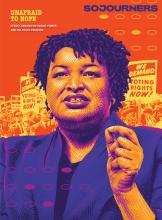EACH SPRING, I plan how to survive the summer. Without the school-year routine, our family leans on relatives, friends, summer camps, and cobbled-together vacation time to get our kids through. But this year, everything stopped: In a pandemic, you can’t visit Grandma or drop off the toddler for a playdate. If raising children takes a village, our village has been scattered. And while the nation collectively experiences this ongoing trauma, parents are attempting to shepherd our children through the same.
A large part of parenting is risk assessment—a constant cost-benefit analysis of how the decisions you make will affect your children for the rest of their lives. When I was pregnant with my third child, now 1, I read Emily Oster’s Cribsheet: A Data-Driven Guide to Better, More Relaxed Parenting, from Birth to Preschool to alleviate the added anxiety. Oster, an economics professor at Brown University, correctly observes that with constantly changing internet recommendations on everything from breastfeeding to screen time, “there is reassurance in seeing the numbers for yourself.” She lays out the scientific data so parents can make informed decisions; for me, it offered confidence—and a rare sense of control.
But that sense of security goes out the window in a pandemic, unforeseen economic collapse, and necessary reordering of our institutional constants. Parents face new risks with precious little, and everchanging, data to guide our analysis. The most common fear shared by parents I’ve spoken to is that our kids won’t be OK—that in trying to find the balance between naked truthfulness and parental protectionism, we’ll lean too heavily to one side, that the wrong decisions will leave lasting marks that follow them into adulthood.
“I don’t know what the world is going to look like. Will I have the wisdom and the capacity and the ability to help guide her through?” Susi McCrea tells me. When we spoke, McCrea was 32 weeks pregnant and living in northeast Washington, D.C., with her husband, Christopher, who was recently laid off, and 1-year-old daughter Katja.
“Will we be able to help [Katja] build the resilience that she needs for something that’s so full of uncertainty—and maybe just a really uncertain world for quite some time—without instilling a lot of fear?”
Read the Full Article

